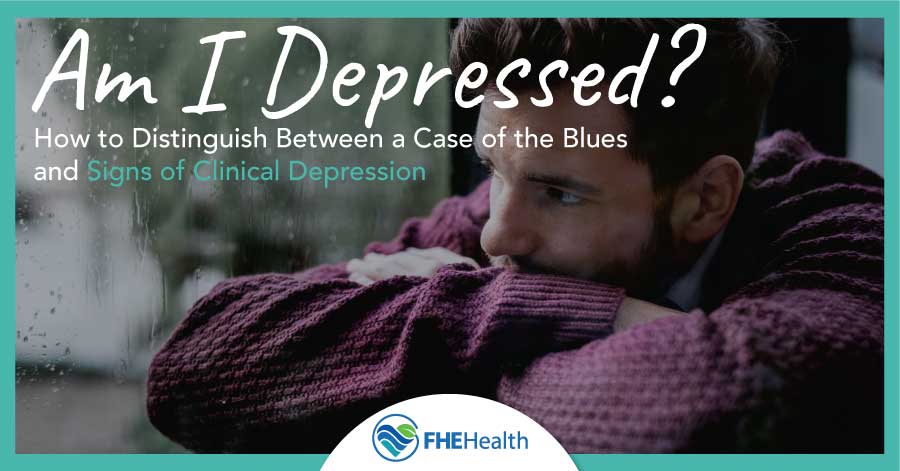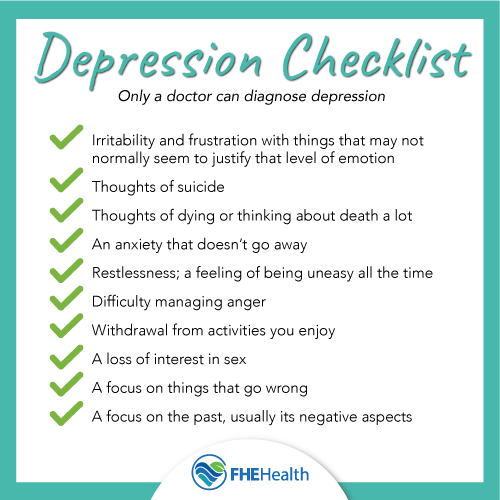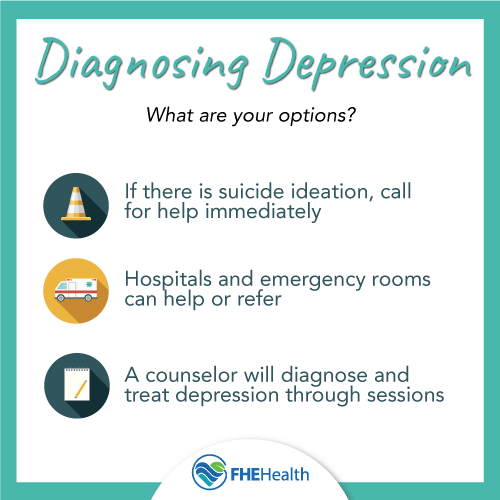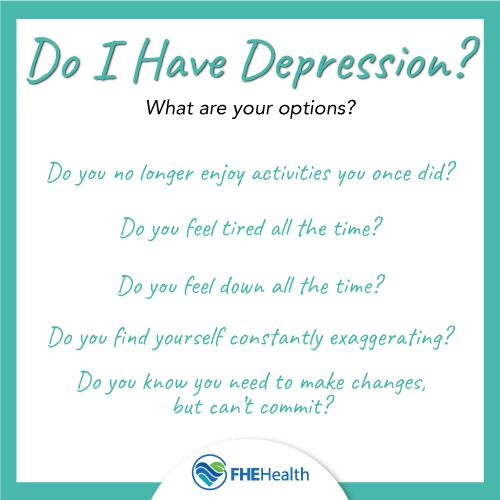
“Am I depressed?” It’s a question many people ask from time to time. Most people go through periods of stress during life.
Sometimes, it seems easy to snap out of it and get on with the good in life. At other times, you may have a lingering depressed mood. Knowing whether this is true depression or just a few days of unhappiness isn’t always easy.
Depression is common. The National Institute of Mental Health reports an estimated 16.2 million adults in the United States have had at least one major depressive episode in their lifetime. Considering just how common it is, you should weigh those lingering feelings of being sad as a serious sign of a condition requiring medical treatment.
Can You Diagnose Your Own Depression?
It’s not uncommon for people to want a simple, straightforward answer to whether or not they have depression. However, you cannot diagnose yourself online. You cannot use this article to diagnose this condition.
This article can shed some light on what depression is, levels of depression, and what signs are likely to point to a diagnosis. You can gather information and insight into this condition, but a true depression diagnosis needs to come from a licensed professional.
How to Know if You Are Depressed
 To know if you have depression, you must consider all forms of it. According to the National Institution of Mental Health, there are six classifications of depression. This includes major depressive disorder, which is the most life-threatening.
To know if you have depression, you must consider all forms of it. According to the National Institution of Mental Health, there are six classifications of depression. This includes major depressive disorder, which is the most life-threatening.
The others are persistent depressive disorder, bipolar disorder, seasonal depression, postpartum depression, and psychotic depression. All forms have different symptoms.
How do you know if you are depressed? Consider the most common symptoms of depression. If you have these signs of depression, it is best to seek a formal diagnosis:
- Irritability and frustration with things that may not normally seem to justify that level of emotion
- Thoughts of suicide
- Thoughts of dying or thinking about death a lot
- An anxiety that doesn’t go away
- Restlessness; a feeling of being uneasy all the time
- Difficulty managing anger
- Withdrawal from activities you enjoy
- A loss of interest in sex
- A focus on things that go wrong
- A focus on the past, usually its negative aspects
If you feel at risk, such as thinking about suicide, call an emergency professional immediately for help. It’s important to recognize depression as a life-threatening condition.
What Are Your Options to Get Diagnosed? What Are the Steps?
 Feelings like this can warrant action right away. In situations where there is a risk of suicide, don’t wait.
Feelings like this can warrant action right away. In situations where there is a risk of suicide, don’t wait.
Call 911 for immediate assistance or go to your nearest emergency room. Most people with depression, though, should seek help even if they are not at that stage.
You have numerous options to get assistance. Your family doctor may offer some guidance or a visit to an emergency room might provide support. However, to truly get help, visit a treatment center for a full evaluation.
Your counselor will ask you questions and have a conversation with you. The goal is to understand what’s happening in your life, what your thought patterns are, and why you may be facing more than a bit of sadness. Not everyone who visits a doctor for depression will be diagnosed as depressed.
The Signs of Depression
As noted, the best way to know if you have depression is to visit a doctor’s office or a mental health disorder treatment facility. However, you can start thinking about your mental health by asking yourself a few key questions.
The “Do I Have Depression” Test
 Take the time to answer these questions. Be honest with yourself. If you find yourself agreeing with most of these signs of depression, it’s important to reach out to a mental professional.
Take the time to answer these questions. Be honest with yourself. If you find yourself agreeing with most of these signs of depression, it’s important to reach out to a mental professional.
Regardless of the results of this test, if you are questioning your mental health, it’s best to get some help from a professional.
- Do you no longer enjoy doing things you used to do? For example, if you loved to read, swim or play video games, do they no longer offer pleasure to you?
- Do you feel like you are tired all the time? You may feel like this even if you sleep well. Do you feel as though you never have any energy?
- Do you find yourself needing or wanting to sleep all of the time? You may feel like you are sleeping too much or have had a family member tell you that you sleep too much.
- Do you feel down often? Do you feel like life is hopeless? You may feel that good things exist around you, but that there’s always something bad happening to you.
- Do you feel like you are a failure or that your family thinks you are a failure? You may feel as though no one really values you.
- Do you struggle to concentrate, such as sitting down to complete a school assignment or a project for work?
- How does food play a role in your day? Do you find yourself overeating? Some people feel as though they have no appetite at all.
- Do you think the world would be better if you were not here? Do you think about dying a lot?
- Do you find you are always unable to accomplish tasks even if you are working hard?
- Do you know you need to make changes but just don’t feel like you can?
How Treatment for Depression Can Help
Treatment for depression can help. In some cases, patients need medication to change the chemical balance in the brain.
This can help to encourage healthy thought patterns. You can’t control or change this on your own.
In other cases, treatment for depression involves dealing with the cause of your negative thought patterns. It may also include finding ways to develop new thoughts that don’t focus on the negative. Through talk therapy and other treatments, you may be able to start feeling better about your life.
Finding Help for Depression Is Possible
You don’t have to fight through depression. You can get help to learn to cope with your feelings and, in many cases, feel better.
FHE Health offers fast, reliable support to help you get the care you need. Contact us now by calling (833) 596-3502. Our team of counselors is standing by to take your call anytime for a free initial consultation.






